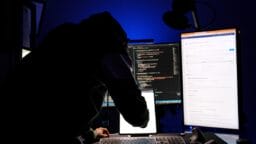UAE Cybersecurity Council Envisions AI Dominance in Cyber Defense
In a forward-looking address delivered on Wednesday, the head of the UAE’s Cybersecurity Council articulated a transformative vision for the future, positing that, within five years, artificial intelligence will predominantly bolster the cybersecurity community rather than serve criminal enterprises.
Dr. Mohamed Al Kuwaiti expressed optimism regarding AI’s capacity to shift the cybersecurity paradigm from a reactive to a proactive stance, contingent upon its proper application in forthcoming months and years.
He articulated, “Early warning systems will empower us to identify cyber attacks prior to their occurrence; this is where my faith in AI lies,” during his speech at the Billington Cybersecurity Summit in Washington.
These assertions arise amidst an alarming backdrop of reports cautioning that, in the short term, AI advancements alongside high-performance semiconductors are diminishing the threshold of expertise required for individuals intent on embarking on cybercriminal activities.
However, the cybersecurity domain and AI have captured substantial attention within the UAE, as the nation seeks to diversify its economic landscape beyond oil dependence.
Dr. Al Kuwaiti confirmed that the UAE has commenced employing AI technologies to safeguard against hacking attempts and threats to its technological infrastructure, indicating satisfaction with the initial outcomes.
He noted the efficacy of collaborations with technology firms in ensuring that the beneficial applications of AI surpass its potential for malfeasance.
“An alert regarding a cyber attack was delivered to us by a partner, not a government entity,” he recounted, referencing a thwarted “zero-day attack” that incurred no damage.
Zero-day attacks exploit vulnerabilities in software or hardware that remain unidentified or unpatched.
Dr. Al Kuwaiti elaborated, “The initial notification we received came from a partner, underscoring the value of strong technology partnerships.”
He contended that, if judiciously crafted and instituted, AI could render cyber attacks obsolete.
“Achieving 100 percent security is feasible when designed appropriately and supplemented with effective AI,” he stated.
The UAE’s commitment to cybersecurity was underscored by the 2024 Global Cybersecurity Index, which awarded the nation a tier-one rating, signifying its status as an exemplar in this critical sector.
Furthermore, in April, the UAE announced the establishment of a Cyber Security Centre of Excellence, supported by Google.
Nevertheless, escalating geopolitical tensions within the Middle East pose significant risks, creating fertile ground for an uptick in cyber threats.
A recent report revealed that the 12-day conflict between Israel and Iran, compounded by rising tensions between India and Pakistan, incited “unprecedented” distributed denial-of-service (DDoS) attacks in the first half of this year.
In Saudi Arabia, an alarming total of 270,179 DDoS attack attempts were documented in the same timeframe, according to NetScout Systems, a prominent provider of cyber protection solutions. Conversely, the UAE recorded a mere 3,477 attempts.

An additional analysis published this year warned that the regional push towards digitizing critical infrastructure and citizen services, combined with ongoing tensions, is likely to exacerbate the scale and intricacy of cybercrime in the Middle East.
Yet, the UAE remains optimistic that its early embrace of technology, cybersecurity, and, most recently, AI will position the nation to maintain a competitive edge.
Dr. Al Kuwaiti previously remarked in April that the UAE is poised to emerge as a “net exporter of cybersecurity talent.”
“Our primary focus encompasses cyber crime, cyber terrorism, and cyber warfare,” he asserted during a prior visit to Washington, emphasizing that the battle for cyber security necessitates collective action across all sectors.
“Our objective is to empower every individual—from CEOs to students—to comprehend their role in safeguarding the digital realm.”
Source link: Thenationalnews.com.






